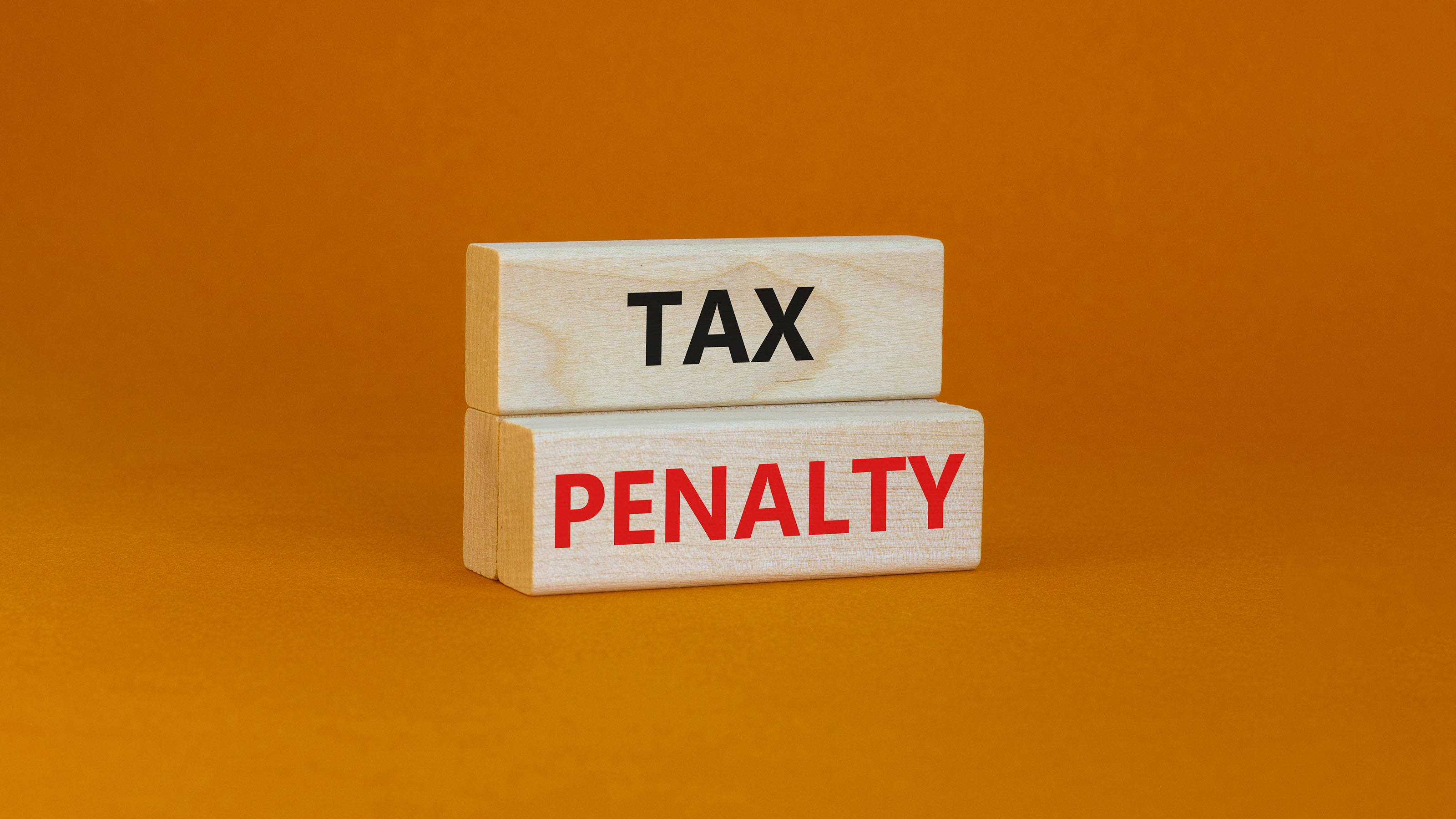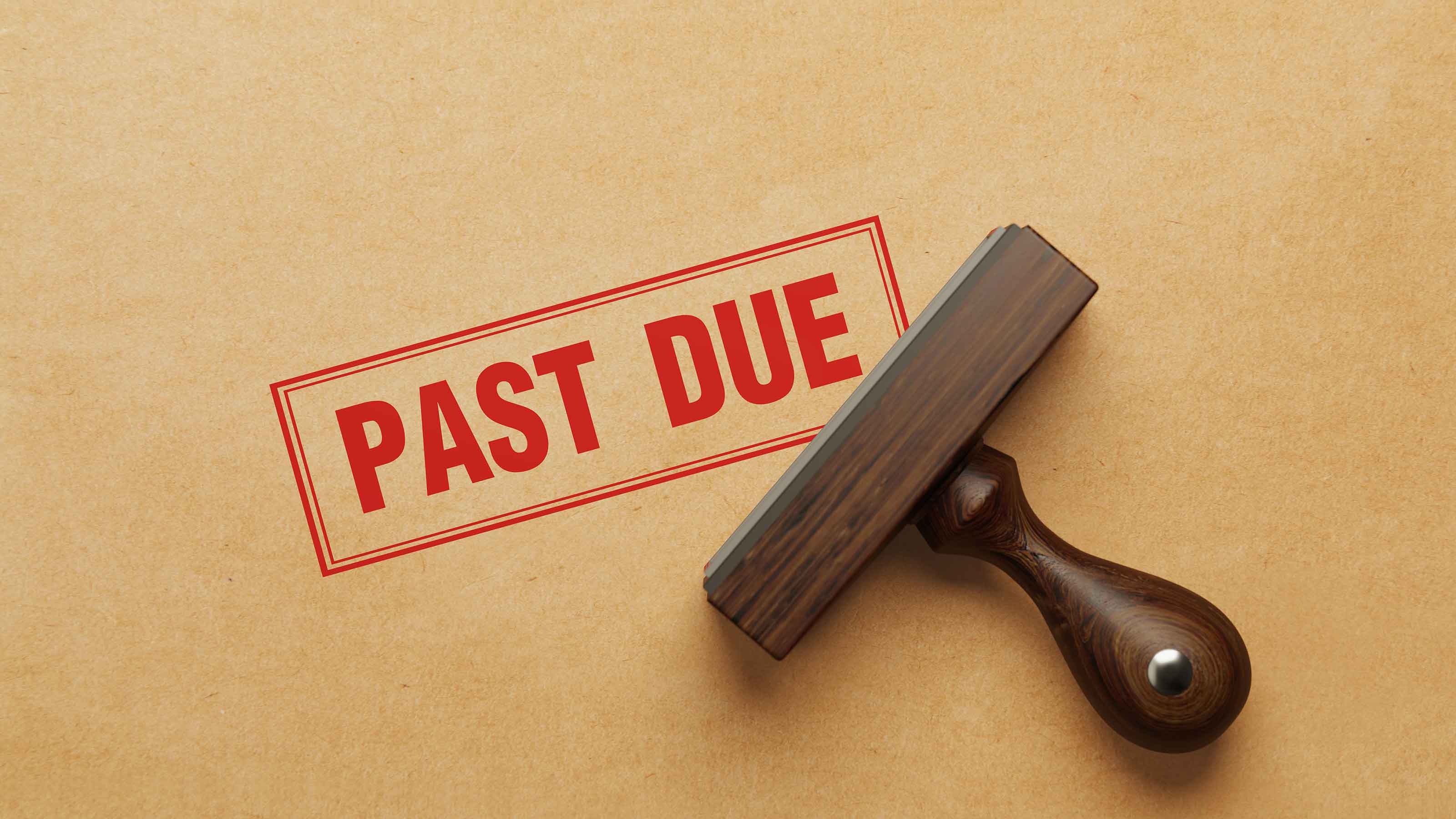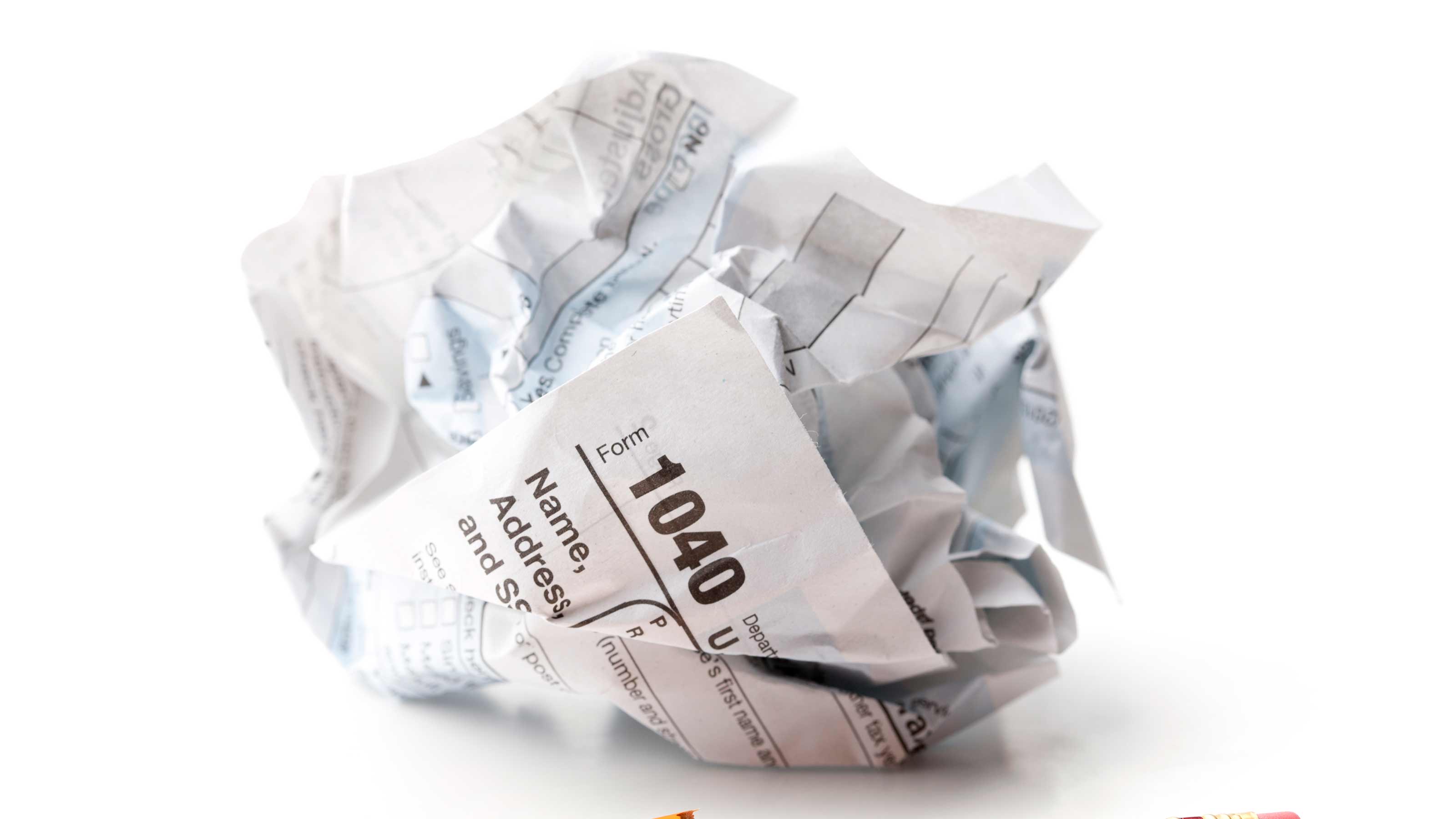Penalties for Filing Your Tax Return Late
Stiff penalties await those who didn't file their return (or pay any tax owed) by the tax filing deadline.


Profit and prosper with the best of Kiplinger's advice on investing, taxes, retirement, personal finance and much more. Delivered daily. Enter your email in the box and click Sign Me Up.
You are now subscribed
Your newsletter sign-up was successful
Want to add more newsletters?
We normally "celebrate" Tax Day on April 15, but it was April 18 this year for most people because the 15th fell on a weekend. If you knew you weren't going to be able to file your 2022 federal income tax return in time, you could have requested an extension to file your return until October 16 (but you still had to pay the tax you expect to owe by your original due date).
But, of course, some people missed the Tax Day deadline and didn't request an extension. And, as you might guess, the IRS doesn't take that lightly and will make you pay a price. If you're curious about what punishment the IRS is going to bring down on you, here's a glimpse of the interest and penalties you may face if you didn't act before the tax deadline.

Interest
Interest accrues on your unpaid balance and compounds daily from April 18 (which was the tax deadline for most people) until you pay the balance in full. Interest rates on underpayments of tax are set each quarter. For non-corporate taxpayers, the rate is equal to the federal short-term rate plus three percentage points. The current interest rate for underpayments is 7% (for first quarter of 2023).

Late Payment Penalty
If you didn't pay the tax you owe on time, the IRS will impose a late payment penalty equal to 0.5% of the tax owed after April 18 for each month, or part of a month, the tax remains unpaid. The penalty is capped at 25% of the amount owed. The rate jumps to 1% ten days after the IRS issues a final notice of intent to levy or seize property. However, the penalty is only 0.25% for each month, or part of a month, in which an IRS installment agreement is in effect.
You won't have to pay the penalty if you can show "reasonable cause" for the failure to pay on time. Reasonable cause is based on all the facts and circumstances in your situation. The IRS will consider any sound reason for failing to pay your taxes on time, including:
- Fire, casualty, natural disaster or other disturbances;
- Inability to obtain records;
- Death, serious illness, incapacitation or unavoidable absence of you or a member of your immediate family; or
- Other reason that establishes that you used "all ordinary business care and prudence" to meet your federal tax obligations but were nevertheless unable to do so.
Simply not having the money, in and of itself, is not reasonable cause for the failure to pay taxes on time. However, the reasons for your lack of funds may meet reasonable cause criteria for the failure-to-pay penalty.
When you finally pay, the IRS will first apply the payment to the tax you owe, then to any penalty, and then to any interest. A penalty amount that appears on your bill is generally the total amount of the penalty up to the date of the notice, not the penalty amount charged each month.

Failure-to-File Penalty
If you didn't file your return by Tax Day and didn't request an extension to file, the IRS can impose a 5% failure-to-file penalty on any unpaid taxes for each month, or part of a month, that your tax return is late. However, the penalty won't exceed 25% of your unpaid taxes.
The late filing penalty is calculated based on the tax that remains unpaid after April 18 or, if an extension is granted, after October 16. Unpaid tax is the total tax shown on your return reduced by amounts paid through withholding, estimated tax payments, and allowed refundable credits.
If your return is over 60 days late, the minimum failure-to-file penalty is the smaller of $435 (for tax returns required to be filed in 2023) or 100% of the tax required to be shown on the return.

Double Penalties
If you still haven't paid what you owe five months after Tax Day, the failure-to-file penalty will max out, but the failure-to-pay penalty continues until the tax is paid, up to 25%.
If both a failure-to-file and a failure-to-pay penalty apply in the same month, the combined penalty is 5% (4.5% late filing and 0.5% late payment) for each month, or part of a month, that your return was late, up to 25%. The maximum total penalty for failure to file and pay is 47.5% (22.5% late filing and 25% late payment) of the tax.
Profit and prosper with the best of Kiplinger's advice on investing, taxes, retirement, personal finance and much more. Delivered daily. Enter your email in the box and click Sign Me Up.
Rocky Mengle was a Senior Tax Editor for Kiplinger from October 2018 to January 2023 with more than 20 years of experience covering federal and state tax developments. Before coming to Kiplinger, Rocky worked for Wolters Kluwer Tax & Accounting, and Kleinrock Publishing, where he provided breaking news and guidance for CPAs, tax attorneys, and other tax professionals. He has also been quoted as an expert by USA Today, Forbes, U.S. News & World Report, Reuters, Accounting Today, and other media outlets. Rocky holds a law degree from the University of Connecticut and a B.A. in History from Salisbury University.
-
 Big Nvidia Numbers Take Down the Nasdaq: Stock Market Today
Big Nvidia Numbers Take Down the Nasdaq: Stock Market TodayMarkets are struggling to make sense of what the AI revolution means across sectors and industries, and up and down the market-cap scale.
-
 How Medicare Advantage Costs Taxpayers — and Retirees
How Medicare Advantage Costs Taxpayers — and RetireesWith private insurers set to receive $1.2 trillion in excess payments by 2036, retirees may soon face a reckoning over costs and coverage.
-
 3 Smart Ways to Spend Your Retirement Tax Refund
3 Smart Ways to Spend Your Retirement Tax RefundRetirement Taxes With the new "senior bonus" hitting bank accounts this tax season, your retirement refund may be higher than usual. Here's how to reinvest those funds for a financially efficient 2026.
-
 3 Smart Ways to Spend Your Retirement Tax Refund
3 Smart Ways to Spend Your Retirement Tax RefundRetirement Taxes With the new "senior bonus" hitting bank accounts this tax season, your retirement refund may be higher than usual. Here's how to reinvest those funds for a financially efficient 2026.
-
 5 Retirement Tax Traps to Watch in 2026
5 Retirement Tax Traps to Watch in 2026Retirement Even in retirement, some income sources can unexpectedly raise your federal and state tax bills. Here's how to avoid costly surprises.
-
 Paper Tax Filers Face Long Wait as IRS Digitization Effort Stalls
Paper Tax Filers Face Long Wait as IRS Digitization Effort StallsTax Filing Last April, the IRS launched its Zero Paper Initiative to speed up paper tax return processing. The project isn’t going well.
-
 How to Open Your Kid's $1,000 Trump Account
How to Open Your Kid's $1,000 Trump AccountTax Breaks Filing income taxes in 2026? You won't want to miss Form 4547 to claim a $1,000 Trump Account for your child.
-
 7 Bad Tax Habits to Kick Right Now
7 Bad Tax Habits to Kick Right NowTax Tips Ditch these seven common habits to sidestep IRS red flags for a smoother, faster 2026 income tax filing.
-
 Should You Do Your Own Taxes This Year or Hire a Pro?
Should You Do Your Own Taxes This Year or Hire a Pro?Taxes Doing your own taxes isn’t easy, and hiring a tax pro isn’t cheap. Here’s a guide to help you figure out whether to tackle the job on your own or hire a professional.
-
 Don't Overpay the IRS: 6 Tax Mistakes That Could Be Raising Your Bill
Don't Overpay the IRS: 6 Tax Mistakes That Could Be Raising Your BillTax Tips Is your income tax bill bigger than expected? Here's how you should prepare for next year.
-
 Will IRS Budget Cuts Disrupt Tax Season? What You Need to Know
Will IRS Budget Cuts Disrupt Tax Season? What You Need to KnowTaxes The 2026 tax season could be an unprecedented one for the IRS. Here’s how you can be proactive to keep up with the status of your return.

